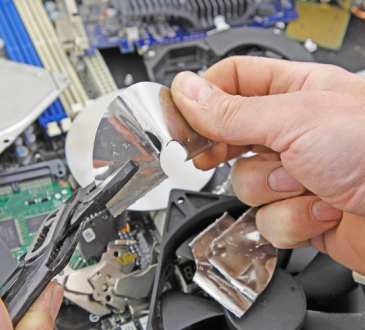
What makes a great developer? Is it the programming languages or frameworks they specialize in? Or is it the algorithms and tools they use?
Technical sufficiency and specialization are absolutely necessary, but it’s the way a developer builds on their technical skills that sets them apart. What makes a developer great is actually the non-technical qualities they’ve developed. Mastering the following qualities will create a solid foundation for a career of growth! Let’s get into it.
1. Never Stop Learning
The industry is constantly changing, best practices are changing, the most popular programming languages are constantly changing. New pieces of technology are banging on the door everyday: some will be gone tomorrow, others will force your attention.
Being a developer means you have to keep up with what’s going on. What is currently the most time-efficient way to do something? What is the most cost-efficient way to do something? The most sought-after developers are those that keep up with the play!
Love the process, because there’s no other industry quite like it. Every new thing you learn is another weapon you can add to your arsenal and another potential way you can impact your own workplace.
Lastly, don’t stop asking questions. Even as a senior developer, continue to draw knowledge from those around you and acknowledge different solutions from others point of view. Finding out you’re wrong is a good thing.
If you’re a freelance developer who doesn’t have access to a senior to learn from, a great idea is to join a coworking space. Coworking spaces are often full of freelance developers or small development teams. They’re a great way to network and find solutions in other like-minded experts—learn more about why freelance developers use coworking spaces.
2. Problem Solving
Proactively problem solving is what makes a developer well rounded and makes the entire development process a lot more efficient. Sometimes we can be guilty of becoming too engrossed in just coding and end up creating a lot more problems than what we originally had. Other times we are lazy with testing and end up burdening the tester or are forced to repeatedly return to the same piece of code.
Other times we are too obsessed with creating the most optimal solution containing the best data structure, data pattern or algorithm. This results in our solution itself becoming needlessly complicated and us losing sight on solving the initial problem.
It’s exactly why junior developers are told not to specialize too early. It’s recommended that they develop a core understanding of programming languages rather than learning specific solution pathways. Knowing the basics is what’s most important, you don’t need to learn every algorithm or design pattern, but you will need to implement them when a solution is required to be more complex. Generally, aim to keep things simple and direct.
3. The Fire Burns Bright (Passion!)
Great developers have said that they find writing code therapeutic. Things we are passionate about are things we don’t get bored doing and sometimes even want to trade in sleep for (maybe, this isn’t recommended). The point is, it’s enjoyable and for the most part doesn’t feel like work, although sometimes it definitely will.
New problems and projects are a challenge and when we overcome them we get that unbeatable hit of dopamine that makes all the hard work worth it. It’s these moments of success that often reignites the fire.
4. Take Pride in Your Work
If you’re not interested, or don’t believe in what you’re doing. It rubs off on your work and will be evident in the way people receive your work. Of course, not every task you have is going to spark joy.
Whether it’s something that is technically tedious such as sorting out a broken build or non-technical tasks such as filling out change request documents, lead by example and make others think “if they’re sweating the small stuff, I will too.”
Many developers suffer from Imposter Syndrome. Imposter Syndrome is the constant lack of belief in one’s own ability or intelligence, even when they evidently have experienced the necessary growth to complete a task. So, take pride in your work, and take the opportunity to raise others up wherever you can.
5. You’re a Team Player
You could be the most technically brilliant developer in the world, but, if you can’t work in or have no respect for a team environment, nobody will want to employ you. You’ll be more disruptive than helpful to a workplace.
If you are technically brilliant and are sure that others around you aren’t as knowledgeable, then take the time to help them and upskill them whenever you have the time. Everyone will want to employ you.
Great developers approach a team with an empathetic and respectful approach. It’s good to be self sufficient, but working alone has a lot of limitations. If you can inspire others to be just as self sufficient and equally as helpful to the team, you’ve become a top developer.
6. Time Management and Task Priority
Time and task management are key skills for a developer. As you progress in your career, you’ll take responsibility for more tasks and have to be able to decide what is currently most important and how you’re going to split your time to make sure you meet deadlines. Meeting deadlines is what makes you reliable.
Having a good gauge on time management and task priority is also what allows you to set realistic deadlines and expectations. Sometimes, developers are prone to accepting mammoth tasks that are due in a very short period. What follows is a hellish mix of overtime, jugs of coffee and a lack of sleep. You’ve completed the task but also set an expectation that is impossible to maintain. Better to be consistently great, rather than fantastic one week and burnt out the next. Consistency is what makes your employer and any clients trust you.
Time management also means you know how to focus. Being able to refocus is an underrated skill. Did you know it can take people upto 23 minutes to completely refocus? Organizing tasks means you’ve made it clear to your team when you’re free to Q/A and will minimize interruptions.
7. Patience
Patience for a developer can refer to patience to learn a new skill or technology, patience for someone else to implement code you’ve written, patience for another team member to catch up or patience in the way you respond to setbacks. The further you grow your career, the better your patience needs to be. Patience is maturity and will be noticed by your seniors.
Conclusion
That’s it! We’ve listed some qualities you need to become a great developer. They’re non-technical, so it doesn’t matter how much experience you have, you can start developing them straight away. These qualities will serve you well but different workplaces will better cater towards them, allowing you to develop these qualities while providing an attractive career pathway. If you’re a junior or senior developer looking to take the next step in your career, the development team at CodeClouds is always looking to hire quality developers in Indiana and Kolkata.




